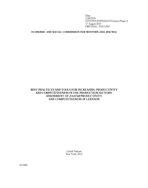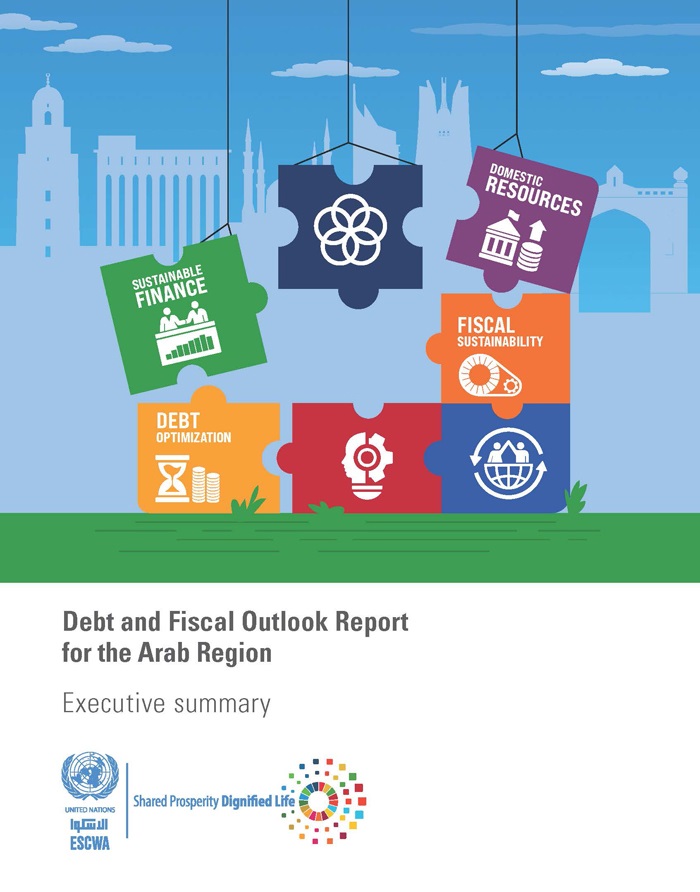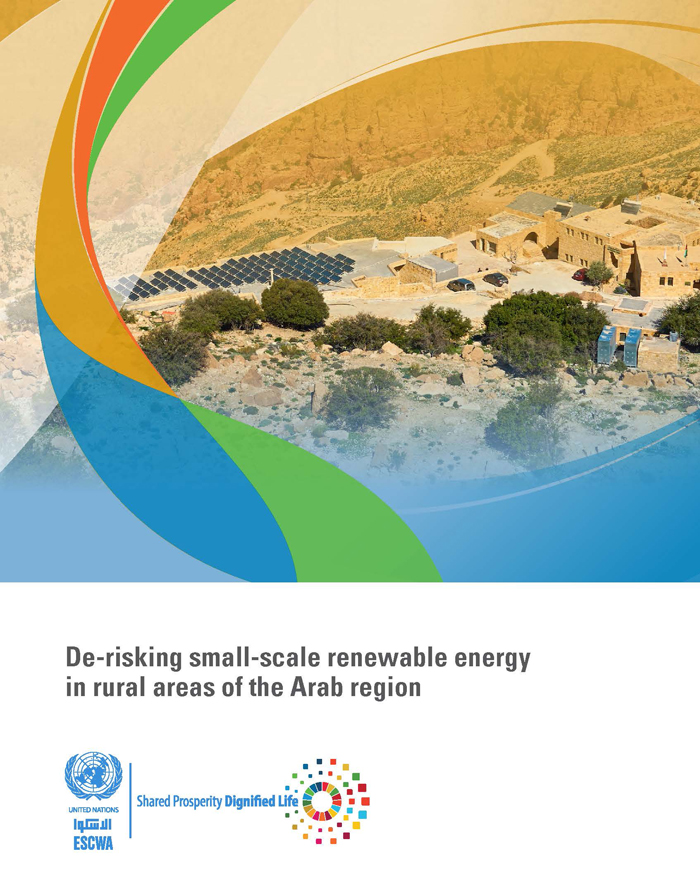
ESCWA Publication: E/ESCWA/SDPD/2010/Technical Paper.3
Country: Arab region, Lebanese Republic
Publication Type: Reports & studies
Cluster: 2030 Agenda and SDG Coordination
Focus Area: Financing for development, Natural resource sustainability
Initiatives: Promoting food and water security
SDGs: Goal 2: Zero Hunger
Keywords: Competitiveness, Food production, Productivity
Best practices and tools for increasing productivity and competitiveness in the production sectors: Assessment of zaatar productivity and competitiveness in Lebanon
January 2010
The Arabic term zaatar designates a variety of aromatic perennial plants typically harvested from the wild, which generally belong to the Origanum, Thymus and other genera of the Lamiaceae (mint) family. The term zaatar is also used to designate the different herb mixes, which in addition to the zaatar herb, usually include such other traditional ingredients as grilled sesame seeds, sumac fruits (Rhus coriaria L.) and salt. Each country possesses its own zaatar mix recipe with specific proportions of ingredients. Zaatar , whether fresh or dried, is a common item in Mediterranean diets and is witnessing burgeoning consumer demand. As such, its cultivation presents interesting economic opportunities for farmers in selected ESCWA member countries. However, large-scale cultivation and processing of zaataris still very limited in the region. In South Lebanon, interventions by ESCWA and other development agencies demonstrated that zaatar cultivation can be pursued as an attractive alternative to subsidized tobacco monoculture and a profitable way to diversify agricultural development and alleviate pressure on wild natural resources.
Related content
Financing for development
, Natural resource sustainability
,
The Arabic term zaatar designates a variety of aromatic perennial plants typically harvested from the wild, which generally belong to the Origanum, Thymus and other genera of the Lamiaceae (mint) family. The term zaatar is also used to designate the different herb mixes, which in addition to the zaatar herb, usually include such other traditional ingredients as grilled sesame seeds, sumac fruits (Rhus coriaria L.) and salt. Each country possesses its own zaatar mix recipe with specific proportions of ingredients. Zaatar , whether fresh or dried, is a common item in Mediterranean diets and is witnessing burgeoning consumer demand. As such, its cultivation presents interesting economic opportunities for farmers in selected ESCWA member countries. However, large-scale cultivation and processing of zaataris still very limited in the region. In South Lebanon, interventions by ESCWA and other development agencies demonstrated that zaatar cultivation can be pursued as an attractive alternative to subsidized tobacco monoculture and a profitable way to diversify agricultural development and alleviate pressure on wild natural resources.



